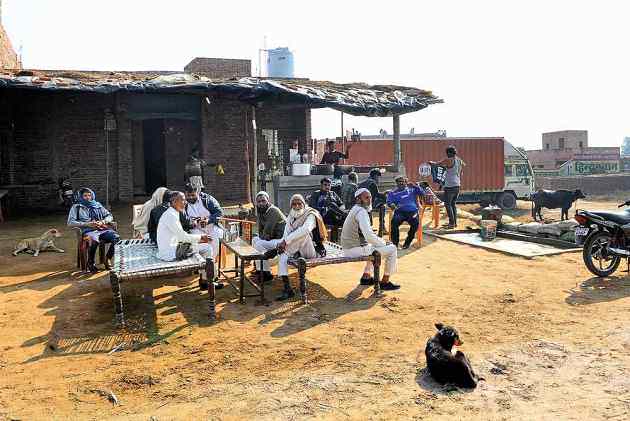How Muzaffarnagar is trying to heal the wounds of the 2013 riots and move on

There can be justice in letting go. It is apt, if ambitious, to remember this tenet of South Africa’s truth and reconciliation commission even as two groups try, in a small corner of India, to put their own differences aside. The scale of trauma doesn’t match, nor does the setting—in South Africa, the truth-and-reconciliation exercise accompanied the fall of the erstwhile apartheid regime—but there is a few commonalities: one, a society divided into a dominant group and those whom it dominates, allowing an almost neat classification as perpetrator and victim; two, a history of prejudice; and three, large-scale violence and consequent displacement of people. In 2013, 60 people, 40 of them Muslim, were killed and over 40,000 Muslims displaced in Muzaffarnagar and Shamli districts in western Uttar Pradesh. Now, there are attempts to promote conciliatory talks between Muslims and the dominant Jat community to bury the grief and rage, so people can live peacefully in the troubled region.
Untested so far, the idea of such talks—supposedly aimed at striking a “peace deal” of sorts—has also invited controversy. The effort hinges on survivors on both sides retracting riot-related police cases—somewhat like German automaker BMW settled a class-action lawsuit last year with a $477-million payout. There is no stock format and no official involvement in the Muzaffarnagar exercise, though. Sudhir Panwar, former member, UP Planning Board, and president, Kisan Jagriti Manch, sounds genuinely sanguine: “There is room for reconciliation between Jats and Muslims as nobody stays in the same place emotionally or mentally for long.”
Panwar, who contested the UP poll on a Samajwadi Party ticket from Thana Bhawan, had met party chief Mulayam Yadav in 2014, proposing peace efforts. “Nothing came of it then, but the process started and is continuing,” he says.
Esta historia es de la edición February 05, 2018 de Outlook.
Comience su prueba gratuita de Magzter GOLD de 7 días para acceder a miles de historias premium seleccionadas y a más de 9,000 revistas y periódicos.
Ya eres suscriptor ? Conectar
Esta historia es de la edición February 05, 2018 de Outlook.
Comience su prueba gratuita de Magzter GOLD de 7 días para acceder a miles de historias premium seleccionadas y a más de 9,000 revistas y periódicos.
Ya eres suscriptor? Conectar

Layers Of Lear
Director Rajat Kapoor and actor Vinay Pathak's ode to Shakespeare is an experience to behold

Loss and Longing
Memories can be painful, but they also make life more meaningful

Suprabhatham Sub Judice
M.S. Subbulakshmi decided the fate of her memorials a long time ago

Fortress of Desire
A performance titled 'A Streetcart Named Desire', featuring Indian and international artists and performers, explored different desires through an unusual act on a full moon night at the Gwalior Fort

Of Hope and Hopelessness
The body appears as light in Payal Kapadia's film

Ruptured Lives
A visit to Bangladesh in 2010 shaped the author's novel, a sensitively sketched tale of migrants' struggles

The Big Book
The Big Book of Odia Literature is a groundbreaking work that provides readers with a comprehensive introduction to the rich and varied literary traditions of Odisha

How to Refuse the Generous Thief
The poet uses all the available arsenal in English to write the most anti-colonial poetry

The Freedom Compartment
#traindiaries is a photo journal shot in the ladies coaches of Mumbai locals. It explores how women engage and familiarise themselves with spaces by building relationships with complete strangers

Love, Up in the Clouds
Manikbabur Megh is an unusual love story about a man falling for a cloud. Amborish Roychoudhury discusses the process of Manikbabu's creation with actor Chandan Sen and director Abhinandan Banerjee